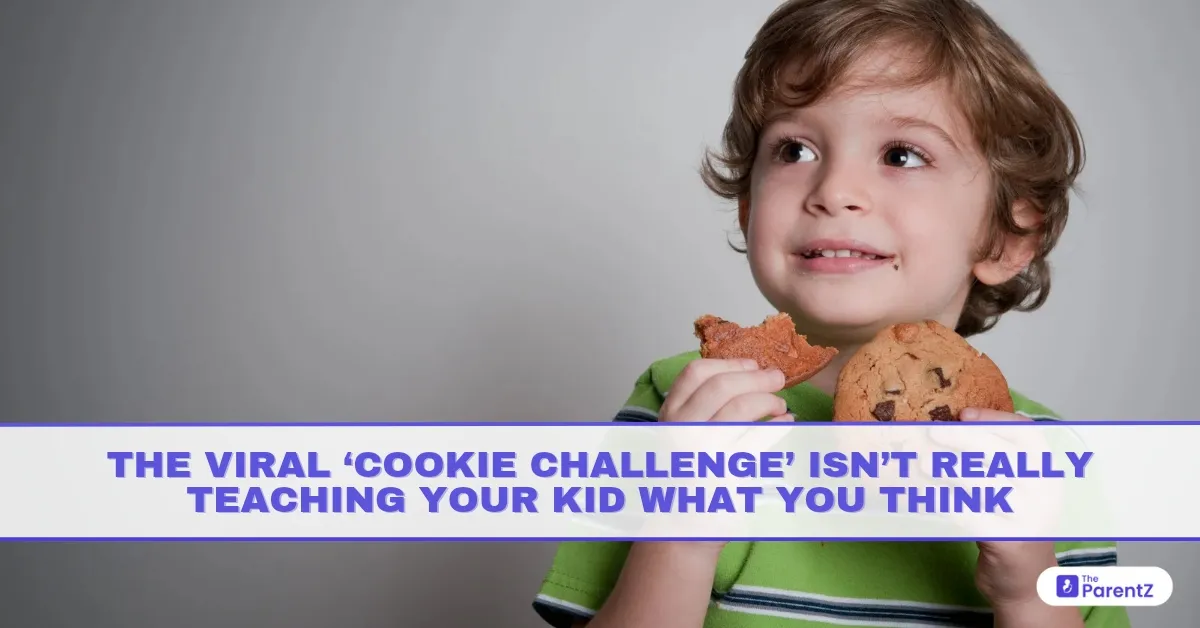You place a cookie in front of your toddler, and you tell them not to eat that until you come back. You hit record. Then you walk away.
What unfolds next is equal parts adorable and nail-biting. Your child shifts in their seat. They hum. They cover their eyes. They might even lick the cookie (but technically not eat it—points for creativity?). When you return and reward their restraint, it feels like a tiny moment of triumph, a modern-day parenting win.
So, what is this actually teaching you kids? Read below this article to explore how this viral cookie challenge is not doing what you might be thinking of.
The Cookie Test Origins: It’s Not Just a Social Media Game
The idea isn’t new. The viral “Cookie Challenge” is based on the famous Stanford Marshmallow Experiment from the 1970s, where children were left alone with a marshmallow and told that if they waited 15 minutes, they’d get two. Researchers claimed that kids who resisted temptation were more likely to have success later in life—higher SAT scores, better coping skills, and more self-control.
Sounds compelling, right?
But, a recent research suggests the original study may have oversimplified things. Socioeconomic status, parenting style, trust, and environment play massive roles in how a child responds—not just their willpower.
Why Your Toddler Isn’t Failing If They Eat the Cookie
Many parents share these videos, thinking they’re testing patience or teaching discipline. But what your toddler may really be learning is:
- “Mom leaves me alone with a camera and a rule I don’t fully understand.”
- “Food might be taken away again, so I’d better eat it fast.”
- “If I don’t follow the rule, I might disappoint someone I love.”
That’s a lot of pressure for a 3-year-old.
Self-control is developmental, not moral. According to child psychologists, impulse control starts to emerge between ages 3 and 5, but it doesn’t fully mature until your child is in their twenties. That means their response to the Cookie Challenge doesn’t reflect who they are—it reflects where they are in their growth.
What This Challenge Really Misses
Trust is a two-way street:
Children need to feel secure and safe—not tested or tricked. These videos, while entertaining to adults, can unintentionally make kids feel scrutinized for things they can’t yet master.
Kids learn best through modeling—not manipulation:
Children are always watching how we manage our own impulses. If you want them to understand delayed gratification, show them how you wait your turn in line, how you pause before responding in frustration, and how you set limits for yourself.
There’s a big difference between teaching and tempting:
Would we leave a loved one with their favorite temptation, film them, and judge their character based on how they handle it? If the answer is no, maybe it’s worth rethinking how we do it with kids.
Conclusion
The Cookie Challenge might make for a cute reel. But when it comes to your child’s development, it’s not a pass/fail test. It’s a moment. A snapshot. And what they need in that moment is not a reward or a punishment—it’s understanding.





Be the first one to comment on this story.